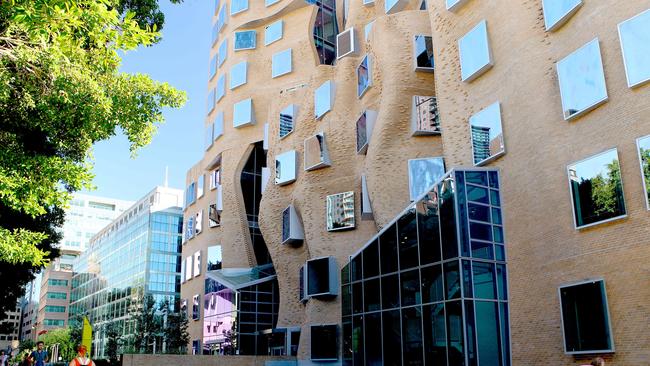Proportionately, UTS does the most high quality research
Proportionately, the University of Technology Sydney does more high quality research than any other university in Australia.

The University of Technology Sydney has maintained its envied position as the higher education institution that punches further above its weight in research than any other in Australia.
The 2020 CWTS Leiden Ranking, released last week, shows 15.3 per cent of published research papers from UTS from 2015 to 2018 are in the top 10 per cent most cited in the world, a higher percentage than for any other Australian university.
The latest Leiden Ranking comes at a critical time for Australian universities because research programs, many funded from international student revenue, are under huge pressure as international student revenue collapses because of COVID-19 travel bans.
Universities are lobbying strongly to maintain or improve their share of the limited amount of research funding the Morrison government will distribute in a new research funding scheme due to be announced at the end of the year.
The Leiden Ranking, produced by the University of Leiden’s Centre for Science and Technology Studies, allows universities to measure their research in numerous ways. They can take a deep dive into data on research quality, research collaboration with other institutions, the degree to which their research findings are open access, and gender equity among their researchers.
In the area of research quality, it allows smaller universities to compare their research efficiency with larger universities without being disadvantaged by their size, because it highlights the proportion of a university’s papers that are high quality, not just the overall number of research papers.
Second after UTS on the research quality measure is the Australian Catholic University, which does well even though its volume of research is small, being oriented more towards teaching. However, of the research papers it does publish, 13.7 per cent are in the world’s top 10 per cent based on number of citations by other researchers.
The ranking shows that UTS does particularly well in two areas — life and earth sciences, and mathematics and computer science — where it has a higher proportion of high-quality papers (in the world’s top 10 per cent by frequency of citation) than any other Australian university.
The Australian Catholic University has a higher proportion of high-quality papers than any other Australian university in two areas — social sciences and the humanities, and biomedical and health sciences.
In a fifth research area — physical sciences and engineering — Edith Cowan University, which produces fewer papers in this area than any other listed university, is top on the quality measure. Although it produced only 114 papers in physical sciences and engineering from 2015 to 2018, 22.9 per cent of them were in the world’s top 10 per cent.
The Leiden Ranking also compares 31 Australian universities in the number of female authors of research papers they have, as a proportion of the number of female and male authorships.
La Trobe University has the highest proportion of female authors at 48 per cent, followed by the Australian Catholic University (46 per cent), Deakin University (42.7 per cent), the University of Canberra (41 per cent) and Griffith University (40.8 per cent).
Swinburne University has the lowest proportion of female authors at 24.1 per cent, with RMIT next lowest at 24.3 per cent, and in ascending order the University of Wollongong (28.1 per cent), the Australian National University (28.5 per cent) and the University of Adelaide (31.7 per cent).




To join the conversation, please log in. Don't have an account? Register
Join the conversation, you are commenting as Logout